-
Thorium to play limited role in U.K. future power supply
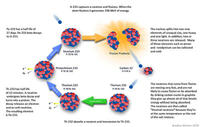
Worldwide, there has for a long time been a sustained interest in the thorium fuel cycle and presently there are several major research initiatives which are either focused specifically on the thorium fuel cycle or on systems which use thorium as the fertile seed instead of U-238; the U.K. National Nuclear Laboratory examined the topic and concluded that thorium has theoretical advantages but that these benefits are often overstated; as a result, thorium fuel cycle at best has only limited relevance to the United Kingdom as a possible alternative plutonium disposition strategy and as a possible strategic option
-
-
China’s nuclear strategy too risky: experts
Beijing’s nuclear missiles exist to deter a nuclear first strike on China, and are only to be used in extremis; at the same time, conventional weapons — including missiles with conventional warheads – located on formerly all-nuclear bases must be ready to strike first and hard; targeted enemies and their allies will not immediately be able to distinguish whether any missiles launched from these bases are conventional or nuclear
-
-
Serious limitations make boost-phase missile interception impractical
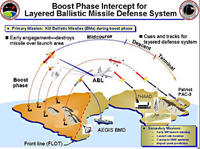
One of the central elements of President Reagan’s 1983 “Star Wars” ballistic missile defense initiative was boost-phase defense: boost-phase defense systems are intended to shoot down enemy missiles immediately following launch while the rocket engine is still firing; a new congressionally mandated study by the National Research Council study says that to defend against ballistic missile attacks more effectively, the United States should concentrate on defense systems that intercept enemy missiles in midcourse and stop spending money on boost-phase defense systems of any kind
-
-
Netanyahu cancels security cabinet meeting on Iran after leaks

Israel’s prime minister, Benjamin Netanyahu, scheduled a 2-day marathon meeting of Israel’s security cabinet for Tuesday and Wednesday, with an 8-hour session planned for each day; the 2-day meeting was called for a thorough and comprehensive – and probably decisive — discussion of Iran’s nuclear weapons program and what should Israel do about it; the speakers on Tuesday included the directors of Israel’s military and civilian intelligence agencies; early Wednesday, Netanyahu abruptly canceled the meeting’s second session because of leaks from Tuesday top-secret meeting session appeared in the Israeli press
-
-
Israel estimates an Iranian retaliation would kill 200-300 Israeli civilians
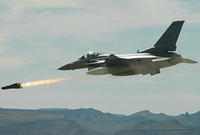
The operation research experts at the Israeli Ministry of Defense estimate that an Iranian retaliation for an Israeli attack on Iran’s nuclear facilities, a retaliation in which Hezbollah would participate, would cause about 200 dead among Israeli civilians; if Syria were to join the attack on Israel, the number of dead would rise to about 300; the estimates are based on past conflicts, the efficacy of Israeli missile defense system, the number of fortified shelters available, and the generally disciplined manner in which Israeli civilians reacted to being under missile and rocket attacks
-
-
Studies of nuclear weapons make a contribution to climate science
Nuclear weapons testing may at first glance appear to have little connection with climate change research, but key cold war research laboratories and the science used to track radioactivity and model nuclear bomb blasts have today been repurposed by climate scientists
-
-
Iran could test-fly ICBMs capable of striking U.S. within three years: Pentagon
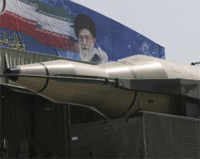
A Pentagon report submitted to Congress on 29 June says Iran continues to make large strides in virtually all conventional, unconventional, and nuclear categories; the report focused most extensively on Iran’s inventory of ballistic missiles, and warned that Iran may be able to test-fly an inter-continental ballistic missile (ICBM), capable of striking American soil, within three years’ time; Iran also continues to supply men, money, training, and even sophisticated weapons systems to some of the world’s best-known terror groups
-
-
Training the nuclear forensics experts of the future
Ten percent of the U.S. experts in nuclear and radiochemistry are at or nearing retirement age, according to a recent report from the National Academies of Science; meanwhile, not enough students are being trained to take their places; undergraduate summer programs in nuclear forensics and nuclear chemistry aim to replenish the ranks
-
-
New book confirms Israel behind killing of Iran nuclear scientists
A book to be published today offers details about, Israel’s campaign to take out Iranian nuclear scientists, a campaign which is part of the Israel’s broader effort to prevent Iran from acquiring nuclear weapons; the book also says that the cyber campaign against Iran’s nuclear program was an Israeli innovation, not an American one as recently reported; it was the brainchild of Israel’s military intelligence agency (AMAN) and Unit 8-200 — Israel’s equivalent of the eavesdropping, code-breaking National Security Agency (NSA) — and endorsed by the White House at Israel’s suggestion
-
-
Even a limited India-Pakistan nuclear war would substantially reduce global crop yields

Worries about nuclear winter have faded since the end of the cold war, but existing stockpiles of nuclear weapons still hold the potential for devastating global impacts; researchers have found that the climate effects of a hypothetical nuclear war between India and Pakistan would greatly reduce yields of staple crops, even in distant countries
-
-
Nuremberg lives: Should Iran’s leaders be charged with incitement to genocide?
Earlier this week, at a UN forum on the global drug trade, Iran’s vice president Mohammad-Reza Rahimi delivered a speech which the New York Times described as “baldly anti-Semitic”; Rahmini charged that the Jews, among other things, are responsible for, and are in firm control of, the global drug trade, and that gynecologists are killing black babies on the orders of Jews; law professors Alan Dershowitz and Irwin Cotler argue that the openly anti-Semitic pronouncements by Iran’s leaders, and the repeated threats they make against the Jewish people, merit bringing Iran’s leaders before the International Criminal Court to face charges of incitement to genocide
-
-
Countdown begins to attack on Iran
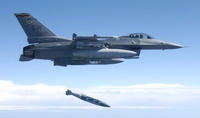
On Tuesday in Moscow, the third round of talks between the P5+1 (the five permanent members of the Security Council plus Germany) and Iran over Iran’s nuclear program ended with the gap between the two sides as wide as ever; there are no plans for more meetings; this means that on 1 July, a new, crippling round of sanctions will be imposed on Iran; the previous round of sanctions de-linked Iranian banks and companies from the international banking system; the coming round of sanctions – which includes, among other things, the removal of insurance from tankers carrying Iranian oil – will bring an end to nearly all of Iran’s oil sales, sales which account for nearly 80 percent of Iran foreign revenues; planning, in both Israel and the United States, for an attack on Iran’s nuclear facilities has now shifted to a higher gear; Congress holds hearings on Israel’s Iran-specific military equipment needs
-
-
Security increases around Pennsylvania nuclear disposal site
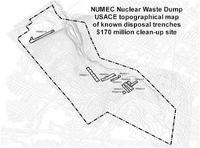
Security around a nuclear waste site in western Pennsylvania has been upgraded, with DHS armed security guards replacing private guards around the site; the reason for the elevated security is the finding, by the Army Corps of Engineers, of more “complex” nuclear materials on the site; it was originally believed that the site contains only low-level nuclear material
-
-
Crisis deepens as third round of nuclear talks with Iran begins today in Moscow
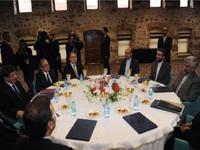
As the delegations of the six Western powers and Iran get set to open the third round of nuclear talks in Moscow today, diplomats involved in the talks say that the coming two days of talks are not quite the last chance for a diplomatic solution to the gathering crisis, but that we are getting uncomfortably close; Western diplomats insist “that there can be no repeat of Baghdad, where [the head of the Iranian delegation, Saeed] Jalili showed readiness to orate but not to bargain, and that they are not interested in continuing ‘talks for the sake of talks’”
-
-
Experts: stronger regulation of military, civilian nuclear programs required
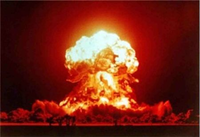
All nuclear energy and weapons programs should be independently regulated and subject to rigorous peer review, according to three experts on nuclear policy who held high office in different U.S. administrations; they note that despite international diplomatic efforts to prevent the proliferation of nuclear weapons and ensure that nuclear material is protected against theft, there is growing apprehension about terrorists acquiring weapons or nuclear material
-
- All
- Regional
- Water
- Biometrics
- Borders/Immig
- Business
- Cybersecurity
- Detection
- Disasters
- Government
- Infrastructure
- International
- Public health
- Public Safety
- Communication interoperabillity
- Emergency services
- Emergency medical services
- Fire
- First response
- IEDs
- Law Enforcement
- Law Enforcement Technology
- Military technology
- Nonlethal weapons
- Nuclear weapons
- Personal protection equipment
- Police
- Notification /alert systems
- Situational awareness
- Weapons systems
- Sci-Tech
- Sector Reports
- Surveillance
- Transportation
Advertising & Marketing: advertise@newswirepubs.com
Editorial: editor@newswirepubs.com
General: info@newswirepubs.com
2010-2011 © News Wire Publications, LLC News Wire Publications, LLC
220 Old Country Road | Suite 200 | Mineola | New York | 11501
Permissions and Policies
Editorial: editor@newswirepubs.com
General: info@newswirepubs.com
2010-2011 © News Wire Publications, LLC News Wire Publications, LLC
220 Old Country Road | Suite 200 | Mineola | New York | 11501
Permissions and Policies
